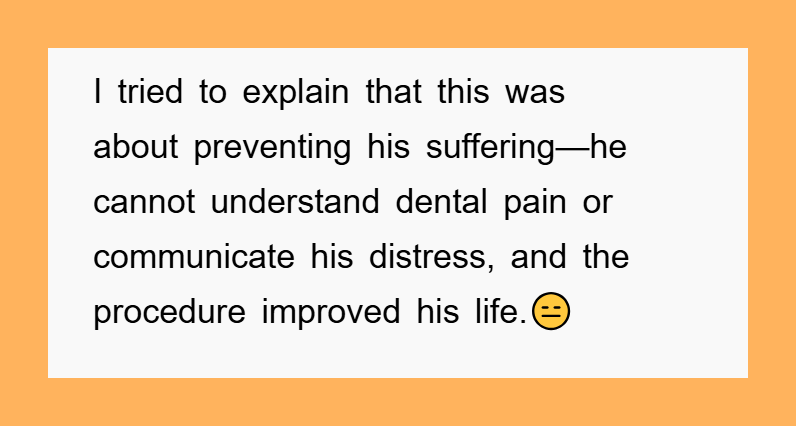“AITAH for Prioritizing My Non-Verbal Brother’s Health Over His Consent?”
OP (34M) is the primary caregiver for his non-verbal brother Noah (22M), who has a severe intellectual disability, rendering his cognitive function comparable to that of a toddler. Noah struggles with extreme sensory sensitivities and cannot articulate pain, which complicates daily care tasks—particularly dental hygiene. Despite extensive efforts with alternative therapies, tools, and desensitization techniques, maintaining Noah’s dental health has been impossible. Over time, his oral condition deteriorated to the point where he showed signs of discomfort that he couldn’t express verbally.
After consulting healthcare professionals, OP consented to a dental procedure under general anesthesia to address Noah’s immediate dental issues and implement preventative measures, such as sealants and the removal of problematic teeth. The results were positive—Noah appeared calmer, happier, and could eat without pain. However, this decision ignited conflict with OP’s older sister Emma (38F), who, though largely uninvolved in Noah’s daily care, is outspoken about disability rights. She accused OP of violating Noah’s bodily autonomy by making irreversible decisions without Noah’s consent. Emma’s objections have caused a family rift, leaving OP questioning if his actions were justified or ethically wrong.
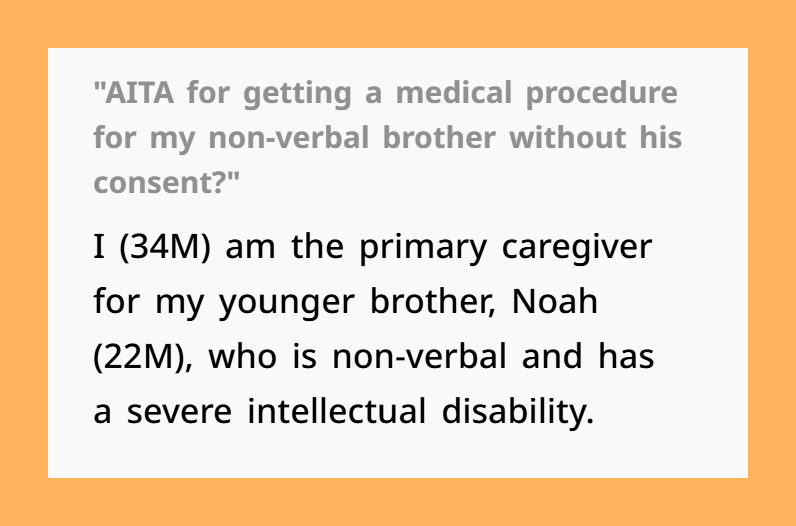
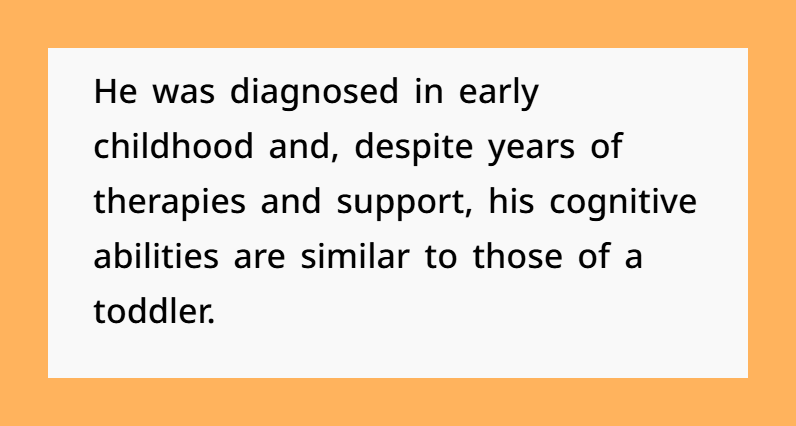
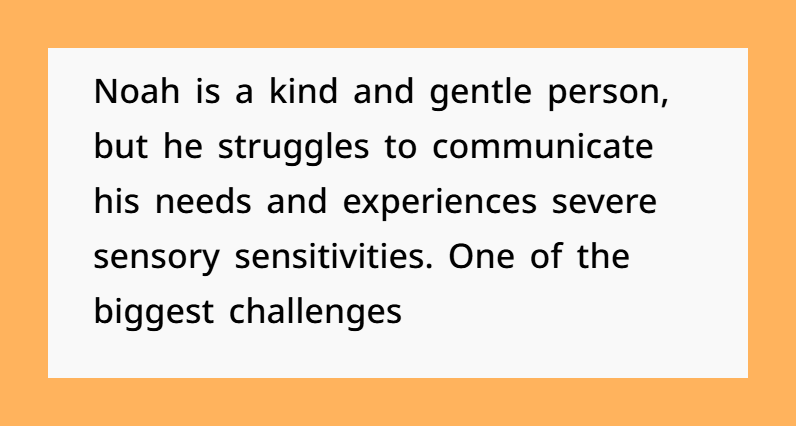
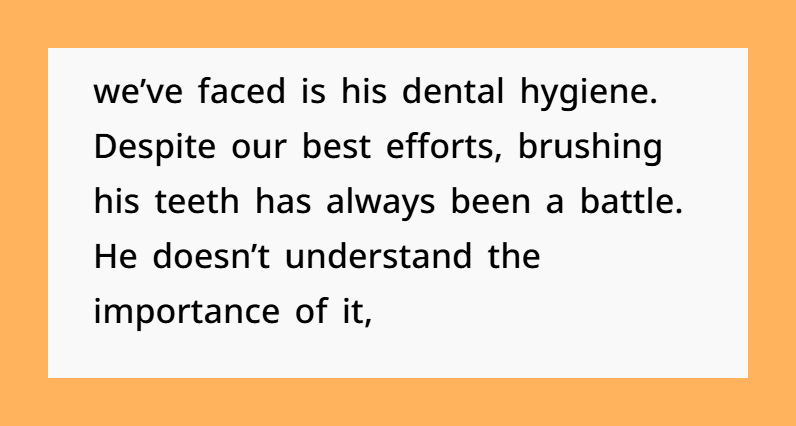
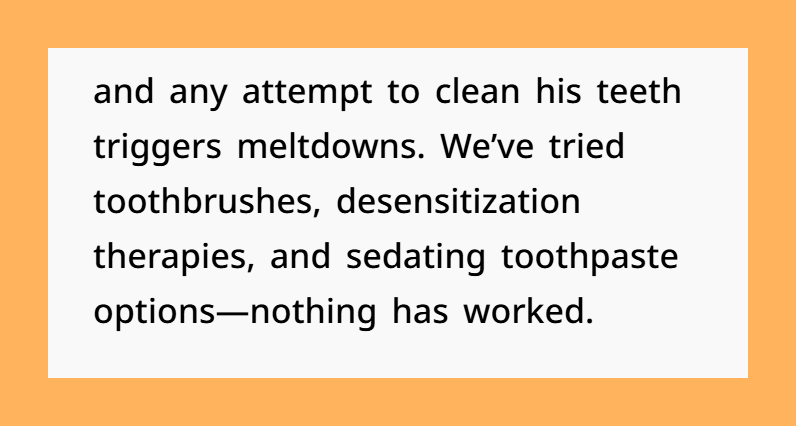


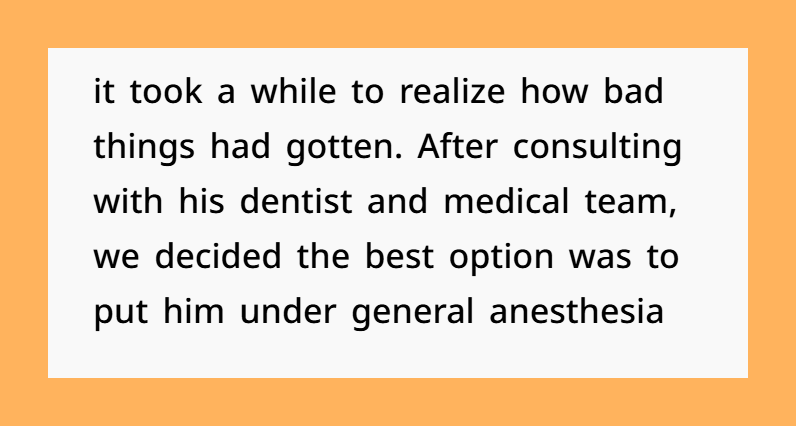
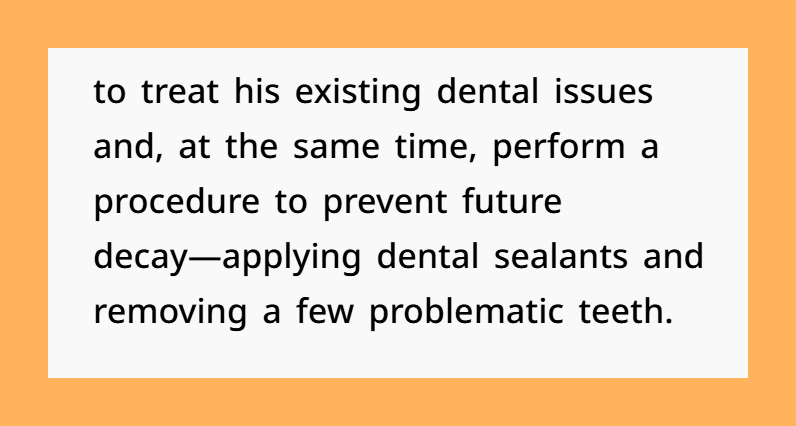
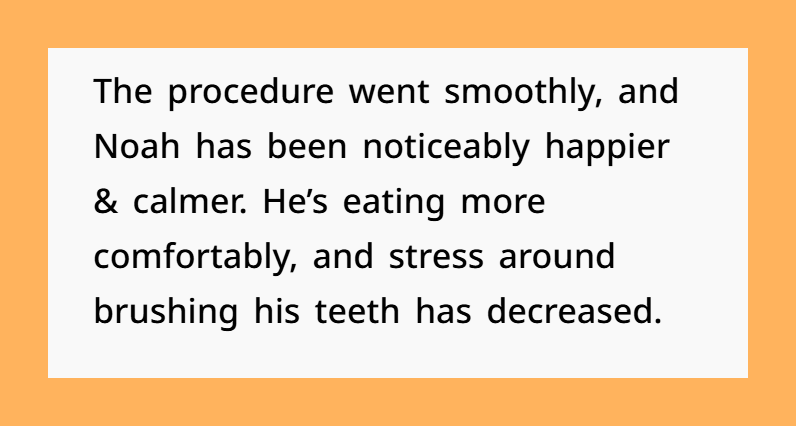

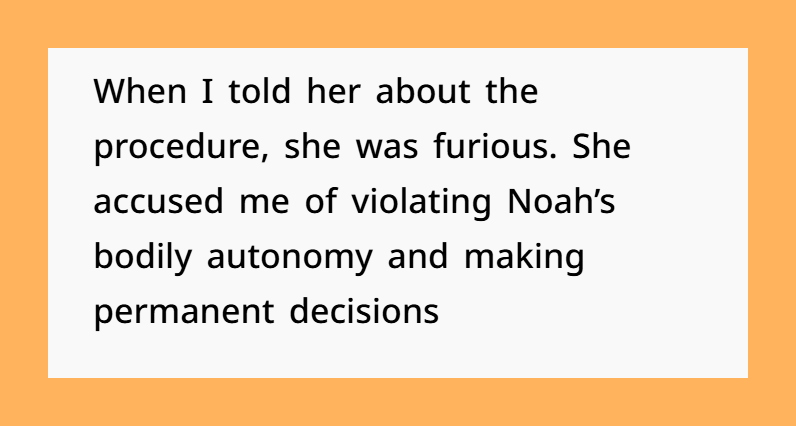
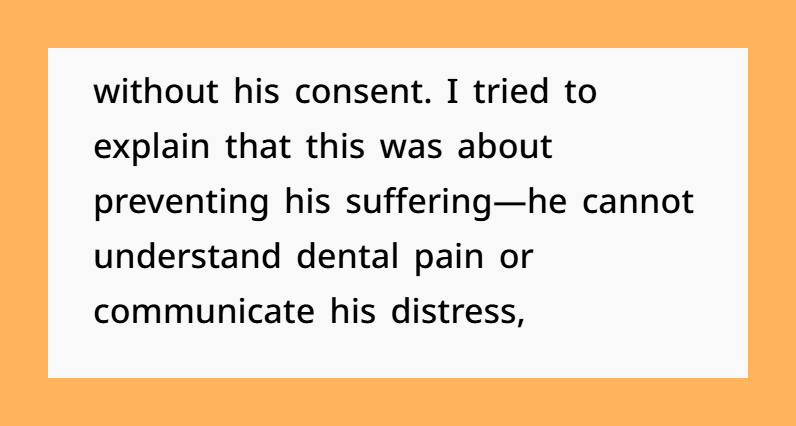





Ethical and Legal Considerations in Medical Consent for Adults with Intellectual Disabilities
1. Legal Precedents and Consent Frameworks
When it comes to medical procedures for adults with severe intellectual disabilities, consent laws differ by region, but most jurisdictions apply substituted decision-making or best interest standards. These frameworks allow a legal guardian or court-appointed caregiver to make medical decisions when the individual lacks the capacity to consent. In the U.S., this is often covered under guardianship statutes, where the guardian must act in the individual’s best interests.
Relevant case law, such as In re Guardianship of L.W. (Wisconsin Supreme Court, 1992), highlights that guardians must prioritize the ward’s comfort, dignity, and health—even if it involves decisions the individual cannot consent to. The court recognized that failure to treat severe medical conditions would constitute neglect, not protection of autonomy.
Similarly, in the UK, the Mental Capacity Act 2005 specifies that caregivers must act in the “best interests” of the person, considering their wishes as far as they can be determined. However, urgent health needs like pain management are prioritized over abstract notions of autonomy when the individual cannot comprehend or engage in informed decision-making.
2. Bodily Autonomy vs. Quality of Life
Emma’s concerns stem from the valid principle of bodily autonomy—a cornerstone of disability rights advocacy. Historically, individuals with disabilities have suffered from medical decisions made for them, sometimes without regard for their agency. However, the critical factor here is capacity for informed consent. Autonomy presumes the ability to understand, weigh, and communicate choices, which Noah, by OP’s description, is not capable of due to his toddler-level cognition.
In situations where individuals lack capacity, prioritizing quality of life becomes paramount. Studies in disability ethics argue that pain prevention and dignity in care should outweigh theoretical autonomy. According to research published in the Journal of Medical Ethics (2020), failing to treat preventable pain in non-verbal individuals constitutes passive harm, violating care ethics and potentially legal mandates for caregivers.
3. Comparable Case Studies
Similar situations have played out in both family and legal settings:
- A 2015 Canadian case involved a guardian consenting to dental surgery for a non-verbal adult with autism. The court ruled the decision appropriate, emphasizing the responsibility to prevent pain and further health deterioration.
- In a 2018 case in California, a family was sued by Adult Protective Services for neglect after failing to treat dental issues, which led to infections. This highlighted that inaction can be considered abuse or neglect under certain care statutes.
The common thread is that caregivers must balance autonomy with well-being, and neglecting necessary care to avoid crossing perceived ethical lines can backfire legally and morally.
4. Disability Rights and Harm Reduction
From a disability rights lens, experts like Eva Kittay (ethicist and disability scholar) argue that the care of individuals with profound disabilities requires a relational model, where autonomy is contextual. Protecting someone like Noah involves reducing harm while respecting his personhood—not necessarily avoiding all interventions. Dental pain, left untreated, could lead to infections, malnutrition, and suffering Noah cannot verbalize, amounting to far greater harm than preventative procedures.
Here were the top rated comments from readers in response to the OP’s post:

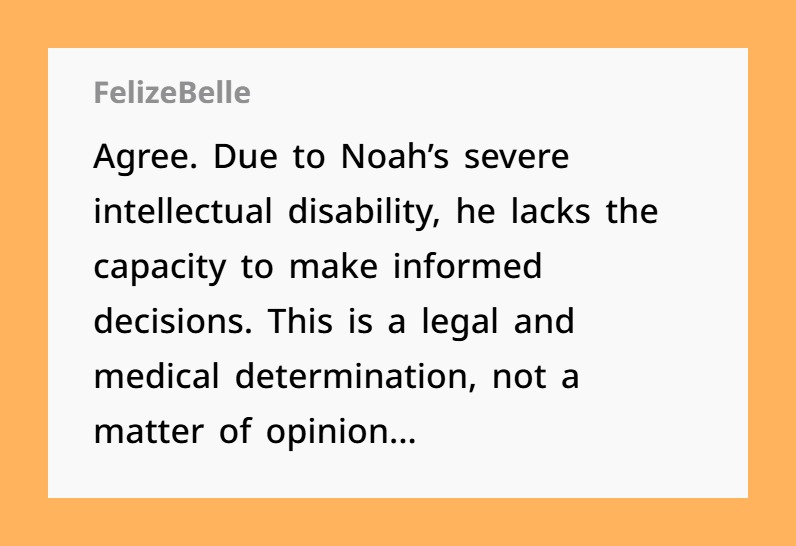

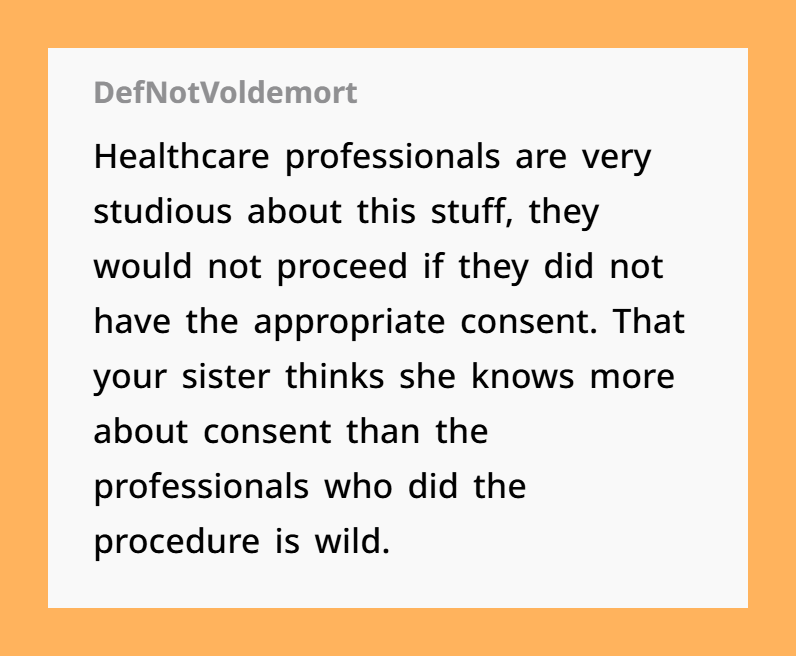
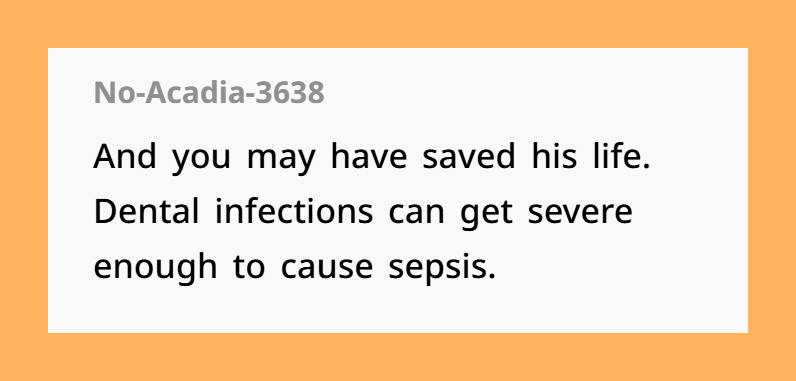
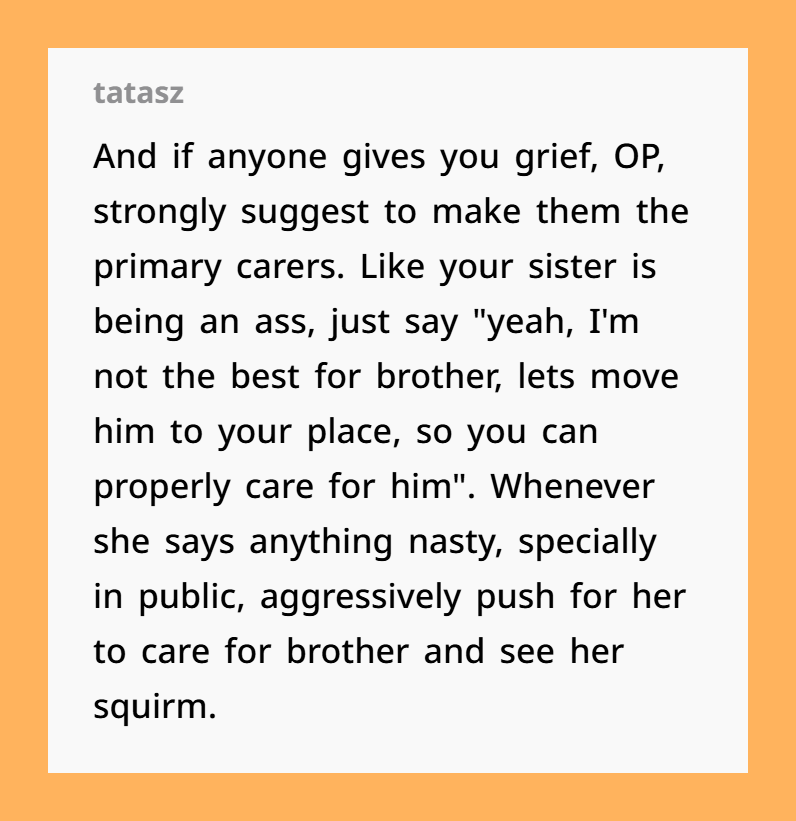

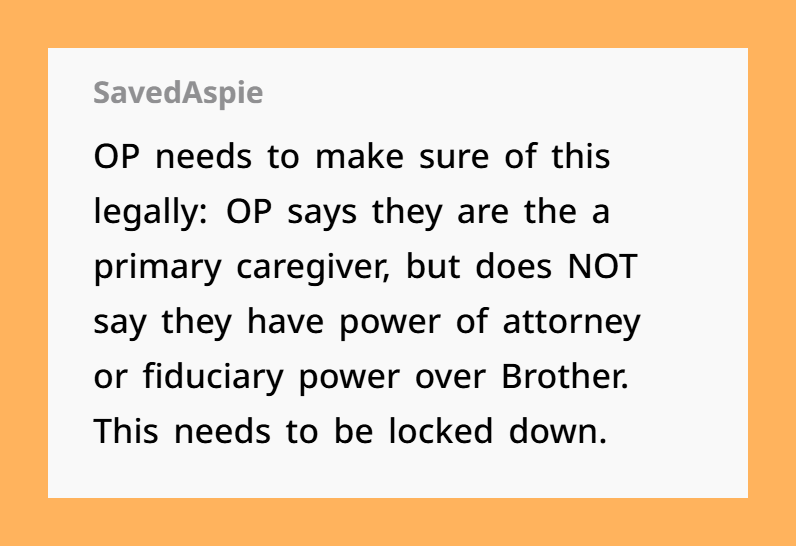
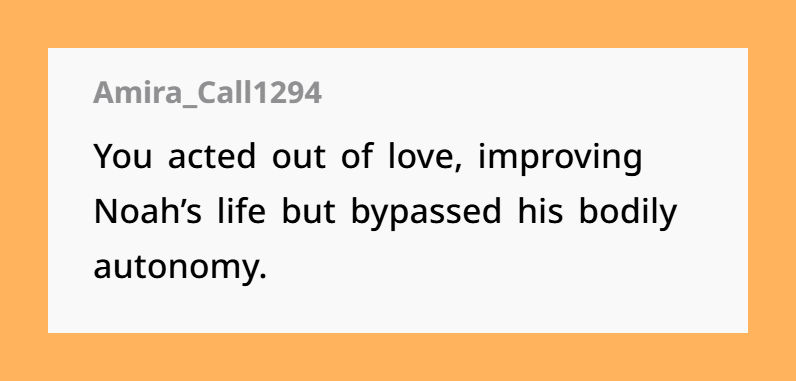

While Emma’s advocacy for Noah’s rights is well-intentioned, it misapplies the principle of autonomy in a context where Noah cannot exercise it. As his caregiver, OP acted within the ethical and likely legal bounds of substituted decision-making, prioritizing Noah’s quality of life, dignity, and comfort. Far from taking the “easy way out,” OP made a medically informed, compassionate decision after exhausting less invasive alternatives.
Verdict: OP is NTA (Not The Asshole)—in fact, his actions align with best practices for caregiving in complex disability cases. Emma’s perspective, though rooted in important values, does not fully grasp the nuance and daily realities of Noah’s care.

